From 2nd to 9th June 2024, the Institute of Jurisprudence and the Institute of Military Jurisprudence jointly paid an academic visit to the University College London and the University of Oxford in the UK. The delegation was led by President Lei Lei and accompanied by Professor Wang Xinyu, Professor Zheng Yushuang and Associate Professor Gao Shang from the Institute of Jurisprudence and Associate Professor Li Qiang from the Institute of Military Jurisprudence.
On the morning of 3rd June, the delegation met with Professor Eloise Scotford, Dean of the School of Law, University College London (UCL), and his delegation, and Professor Isra Black, Principal of the Law and Research Impact and Engagement Lead of UCL, participated in the academic exchanges.Professor Scotford is an expert in environmental administrative law. Professor Scotford, who is an expert in environmental administrative law and mainly focuses on environmental legislation and air quality protection, made a presentation on the latest legal challenges of environmental protection in the UK and the prospect of Sino-British co-operation on environmental protection. Prof Lei Lei gave a presentation on legal reasoning in judicial decisions on environmental protection in China. Prof Zheng Yushuang gave an academic speech on the latest development and legal challenges of artificial intelligence in China. Associate Professor Gao Shang gave a presentation on the judicial reform of the Supreme People's Court of China, especially the latest judicial initiatives in the field of environmental protection.
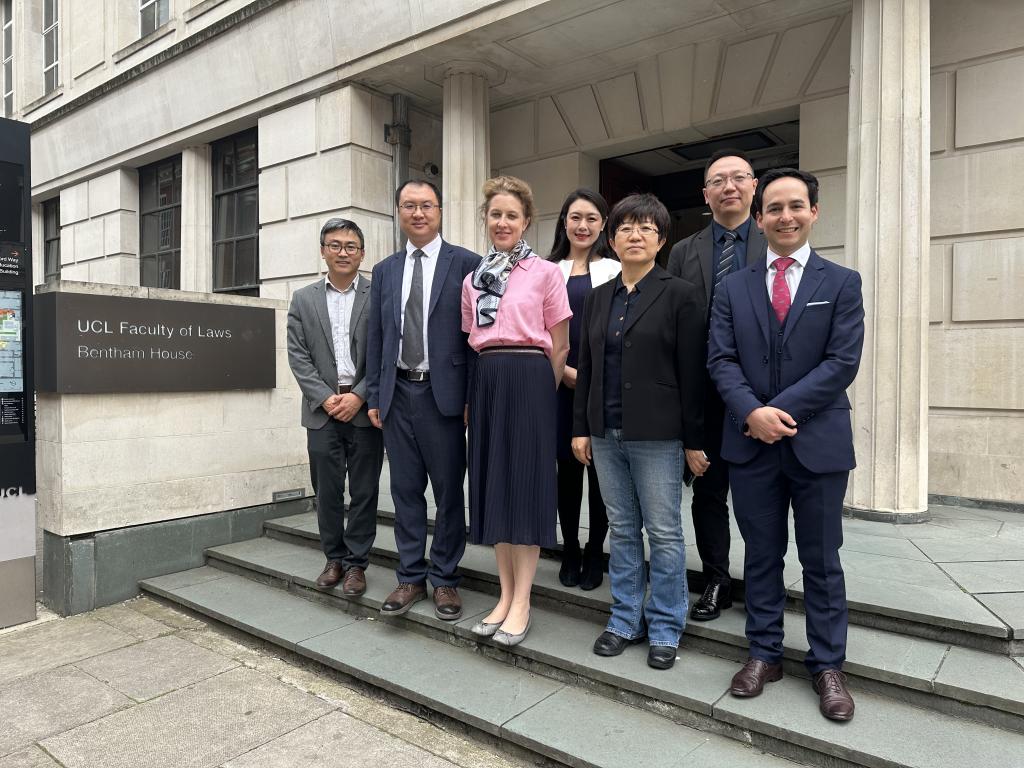
On the afternoon of 3rd June, the delegation met with Professor Martin Fischer, a member of the UCL Law School faculty, and other staff and students of the Law School for an academic seminar, who is an expert in the field of philosophy of law and philosophy of torts, and has carried out in-depth research on the issue of unjust enrichment, and has put forward his unique viewpoint on the philosophical basis of unjust enrichment from the perspective of practical philosophy. Martin Fischer put forward his unique viewpoint on the philosophical basis of unjustified enrichment from the perspective of practical philosophy. Professor Lei Lei reviewed and reported on the relationship between legal doctrine and the philosophy of tort law, and elaborated on the latest progress in the field of Chinese legal methodology. Prof Wang Xinyu gave an academic insight into the recent progress of feminist jurisprudence in China and its concrete embodiment in sectoral law. Prof Zheng Yushuang gave an academic report on the relationship between general jurisprudence and sectoral law philosophy. Associate Professor Gao Shang summarised and reflected on the case guidance system of tort law in judicial decisions.
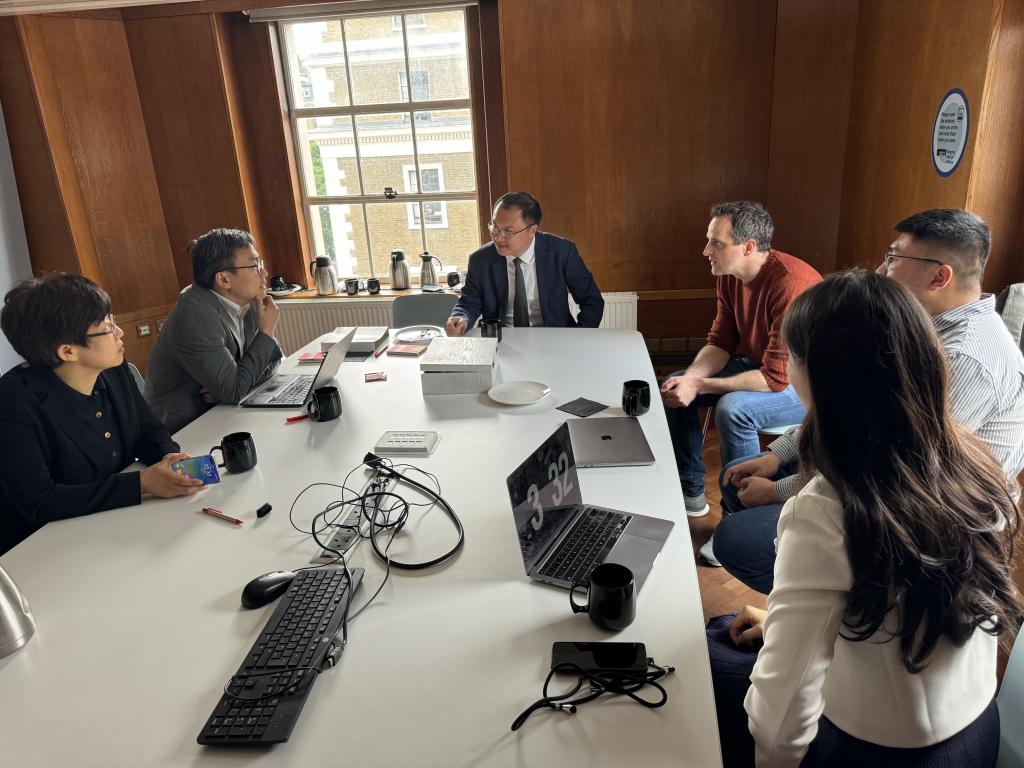
On the morning of June 4, the delegation met with Professor Philip Schofield, Director of The Bentham Project at the ULC School of Law, which is the leading international centre for the study of Bentham, and other members of the centre for academic exchanges and discussions. Professor Schofield firstly showed Bentham's manuscripts to the delegation and gave an academic explanation on Bentham's philosophical and legal thoughts. Professor Lei Lei gave an academic report on Bianqin's codification and its influence on contemporary codification legislation. Prof Zheng Yushuang gave an academic presentation on Bianqin's legal positivism and its development on contemporary legal positivism. Associate Professor Li Qiang gave a scholarly commentary on Bianqin's thought on international law and its great influence on the process of modern international law.
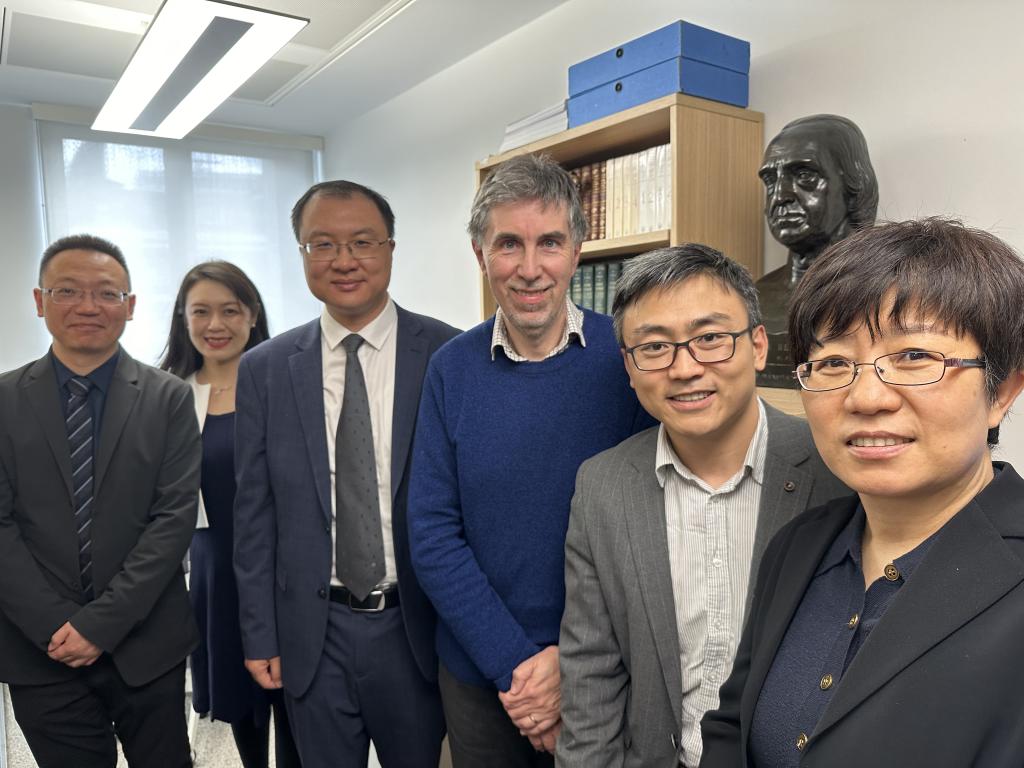
In the afternoon of 4th June, the delegation met with Professor Kevin Toh of ULC Law School and other students and faculty members of the Law School, who is an internationally renowned philosopher of law and has written extensively in the field of analytical philosophy of law, and gave a lecture on the relationship between meta-ethics and philosophy of law. Professor Lei Lei gave a lecture on the basic position of general law theory and its development in China, and commented on Professor Toh's meta-ethics theory. Prof Zheng Yushuang gave an academic report on the topic of Foundation Theory in the Philosophy of Law. Associate Professor Gao Shang elaborated on the legal philosophy foundation of concurrent judgement in the context of the guiding case system.
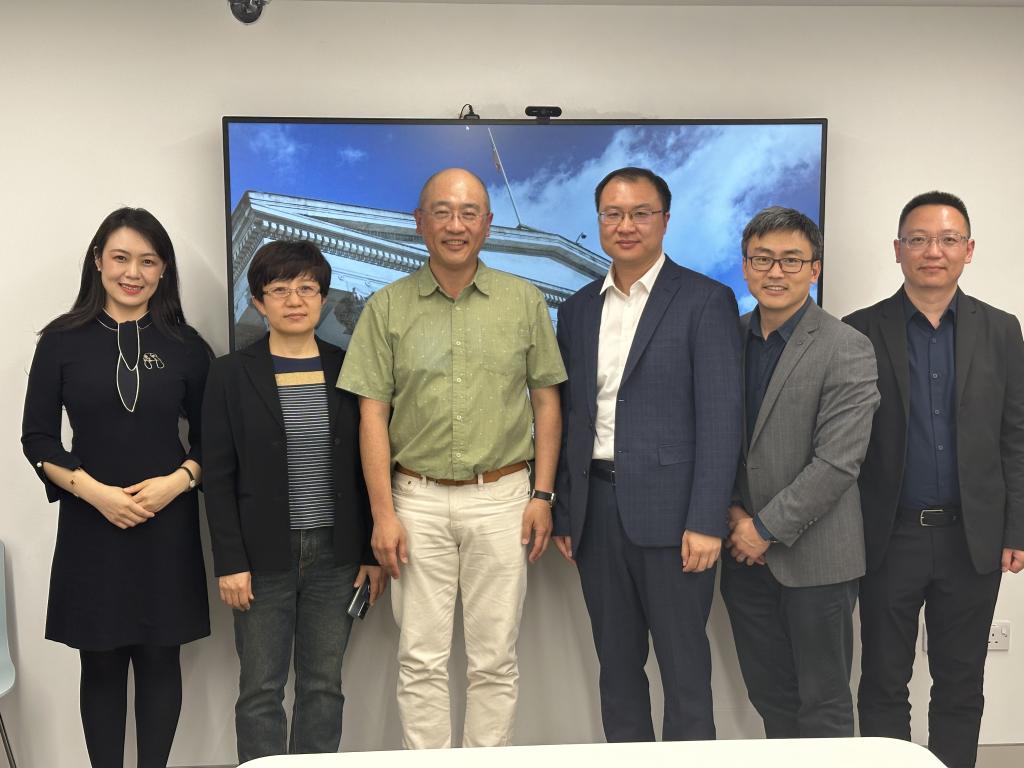
On the morning of 5th June, the delegation was invited to visit Central Criminal Court in the City of London and had an academic exchange. The delegation met with Judge Henry Colthurst and other staff members, who gave an academic report on the latest reform of the UK criminal justice system. Prof Lei Lei gave a presentation on the main initiatives of China's criminal justice reform and commented on Judge Colthurst's report. Prof Zheng Yushuang gave an academic report on the main features and social significance of Chinese criminal legislation. Professor Wang Xinyu made comments and reflections on the latest progress of judicial practice of family law in China. Associate Professor Gao Shang introduced his personal research and had a lively discussion on how the two major legal systems hook up the methods of analogical and deductive reasoning through jurisprudence, so as to achieve the coherence, stability and predictability of law.
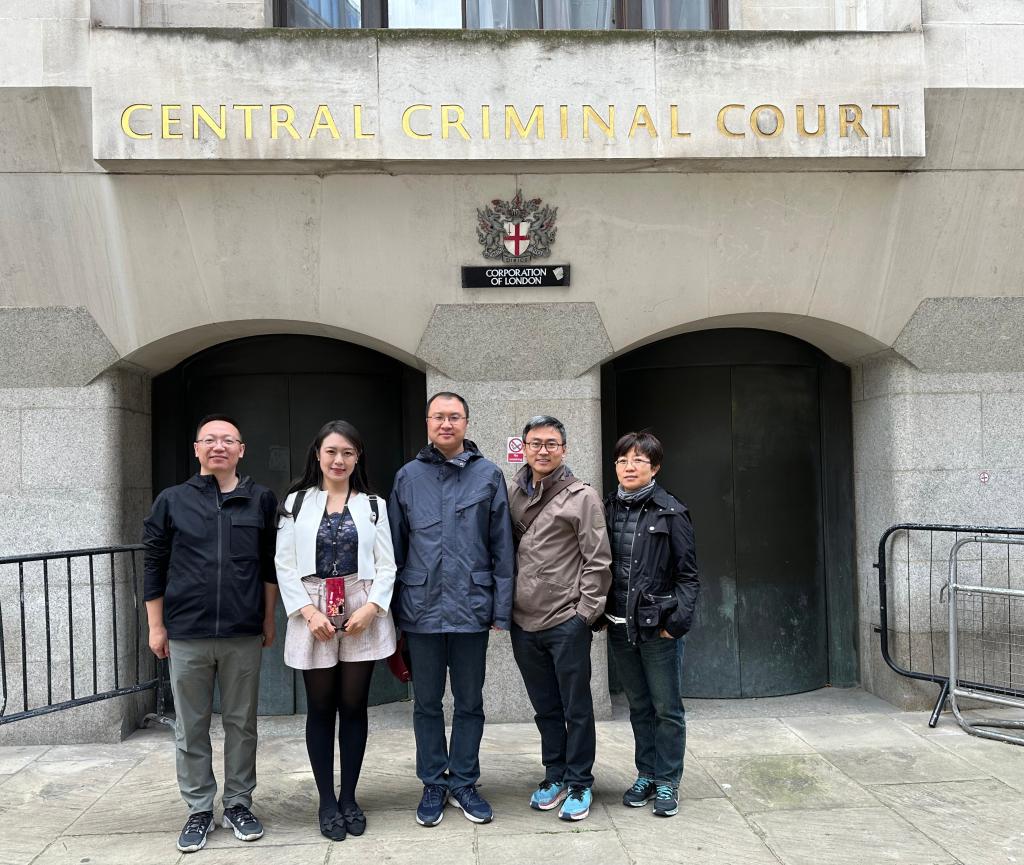
On the morning of 6 June, the delegation participated in a colloquium on ‘Interpretivism and its Critiques’, jointly organised by the Faculty of Law of the University of Oxford and the University of Texas at Austin. The symposium invited jurists from universities around the world to discuss Dworkin's interpretivist position and the various criticisms he has faced. Professor Lei Lei expressed his views on the similarities and differences between Dworkin's interpretivism and Alexi's theory of legal argumentation. Prof Zheng Yushuang gave an academic report on the philosophical basis of Dworkin's theory of value oneness and its criticisms. Prof Wang Xinyu gave an insight into Dworkin's moral philosophy in light of Dworkin's advocacy of feminism. Associate Professor Gao Shang analysed the significance of interpretivism in judicial adjudication.
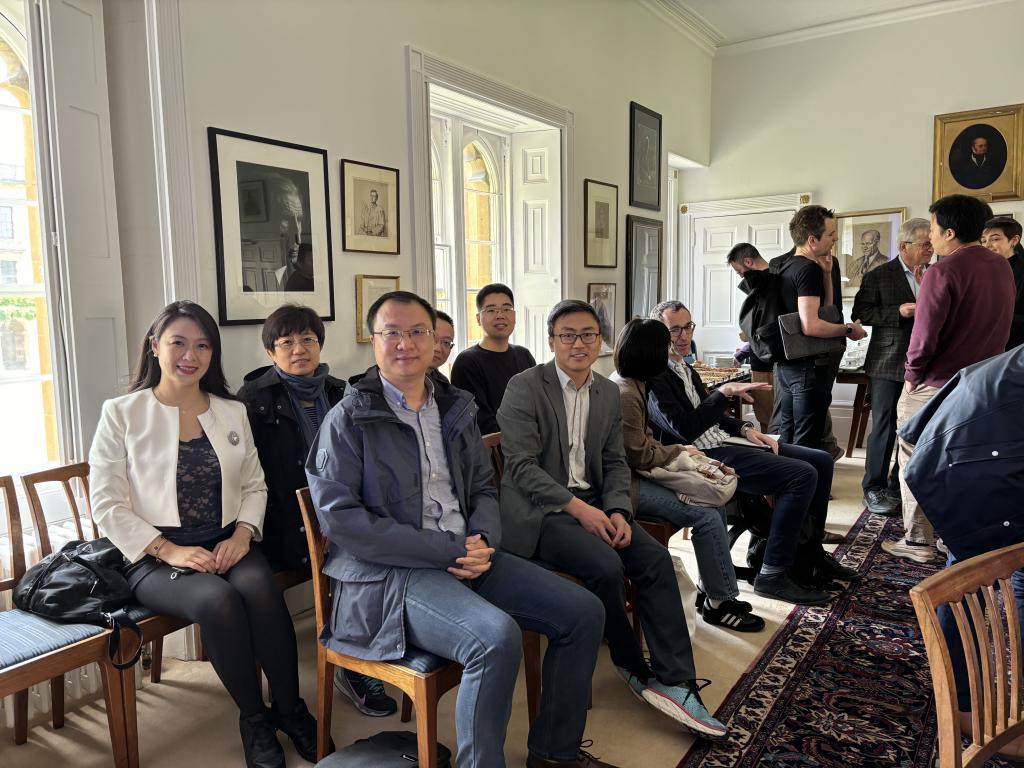
In the afternoon of 6th June, the delegation had an academic discussion with the China Centre of the University of Oxford. Professor Todd Hall, Director of the Oxford University China Centre, Professor Matthew Erie and other researchers participated in the academic discussion.Professor Todd Hall and Professor Matthew Erie gave academic presentations from the perspectives of legal protection of the Belt and Road and China's judicial system reform in the light of their own research. Professor Lei Lei introduced his research on general legal doctrines conducted in recent years, especially the challenges and responses to the basic categories of jurisprudence in the era of new technology. Professor Wang Xinyu introduced the connotation of Chinese-style modernisation and its aspects that can provide a theoretical paradigm and experience for other countries to learn from. Prof Zheng Yushuang addressed the achievements of China's rule of law construction and the core categories of rule of law thinking. Associate Professor Li Qiang introduced some Track II dialogue processes in which he personally participated, and expressed his personal views on the difficulties and solutions to the issue of safe governance of AI, and learned about the research and main points of view of scholars in related fields from Oxford and other universities by asking questions.

On the morning of 7th June, the visiting delegation held academic exchanges with Professor John Armour, Head of the Department of Law of the University of Oxford, Professor David Enoch and others, with the participation of Associate Professor Yoon Ma, who is visiting the Department of Law of the University of Oxford in our institute. Prof Armour expressed his insights on the legal challenges of AI technology and its impact on legal education, and Prof Enoch criticised Rawls' political philosophy, suggesting the need to reconstruct the liberal stance and the connotation of autonomy. Prof Lei Lei introduced the current hot areas and issues of research in Chinese law, especially the research status of AI and law in academia, and the third path China has taken in terms of industrial protection and security protection of AI, which is different from that of the US and Europe. Prof Zheng Yushuang reported on the ethical and jurisprudential orientations of emerging technologies in light of China's latest developments in the field of smart justice. Associate Professor Li Qiang introduced China's national stance and policy on AI governance, explored the legal governance of AI technology from a military perspective, and introduced the process of China-US, China-EU Track II dialogue on AI governance, discussing the key issues and challenges faced therein. Associate Professor Gao Shang introduced his personal research and gave a speech around his latest work on the guiding case system.
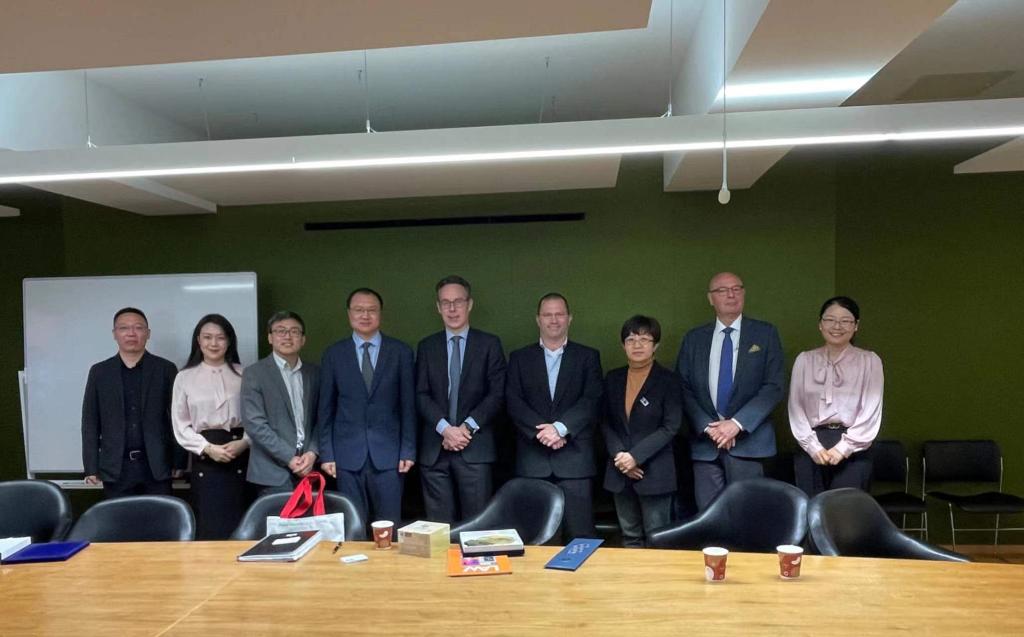
On the 8th of June, the delegation departed from London and returned to Beijing, bringing the academic visit to a successful conclusion.